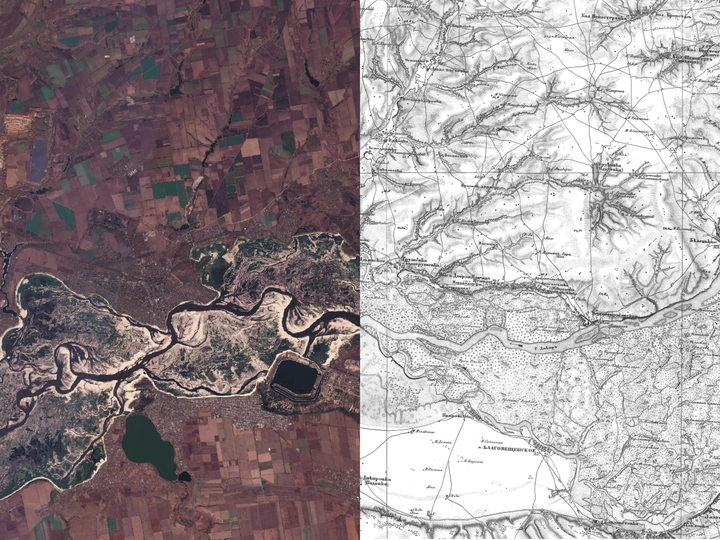Decolonial Grounds of Ukraine’s Recovery

Svitlana Usychenko is an urbanist and spatial researcher based between Paris and Kyiv. With a background in architecture and a MSc in Urban Design from Politecnico di Milano, she focuses on contributing to socio-ecological transitions through urban planning tools.
Over the past three years, she has worked with Ro3kvit: Urban Coalition for Ukraine on recovery and climate adaptation of Ukrainian cities, developing the “Climate-Proof Urban Strategy” for Kremenchuk and contributing to the “Comprehensive Recovery Program of the Kyiv region”.
As part of the NGO ReThink she led the development of POVTORNO, a digital tool for circular construction. In collaboration with Greenpeace CEE Svitlana worked on the “Dnipro River Integrated Vision”, which has been exhibited at the 19th Venice Architecture Biennale (French Pavilion), and she was a guest lecturer on integrated urban planning and decolonial thinking at Harvard GSD and MIT.
How can we recover territories devastated by war without amplifying spatial logics that once enabled control and extraction?
This proposal develops a framework for applying decolonial thinking to spatial recovery in Ukraine. In a context where imperial, Soviet, and now full-scale invasion forces have left deep environmental and territorial scars, the question is not only what to rebuild, but how to understand the land itself, beyond colonial categories of control and erasure. In response, the proposal begins with the production of alternative spatial knowledge as a foundation for more just and ecologically sensitive recovery processes.
As an urban planner and architect, I began to explore this question during collaborative work with Ro3kvit: Urban Coalition for Ukraine and Greenpeace CEE, in the projects on the Dnipro River.
This experience led me to an individual inquiry into decolonial thinking. Applying principles of urban political ecology, I investigated the entanglement of ecological, political, and social dynamics in territories shaped by long histories of industrialisation and resource extraction as part of the ongoing publication project “War Diaries: Ecologies of Post-War Reconstruction” curated by Elisa Dainese and Aleksandar Staničić.
This proposal seeks to advance the research by developing a framework for applying decolonial lenses to urban recovery projects. It aims to support spatial practitioners (urban planners, architects, and policymakers) in critically engaging with Ukrainian territories.
This is not a blueprint for reconstruction, but rather a methodology for unlearning - a tool to identify the embedded spatial injustices of the past and to prevent their repetition. While grounded in Ukraine, the framework offers relevance for other territories confronting the environmental legacies of war, colonisation, and imposed planning paradigms.
